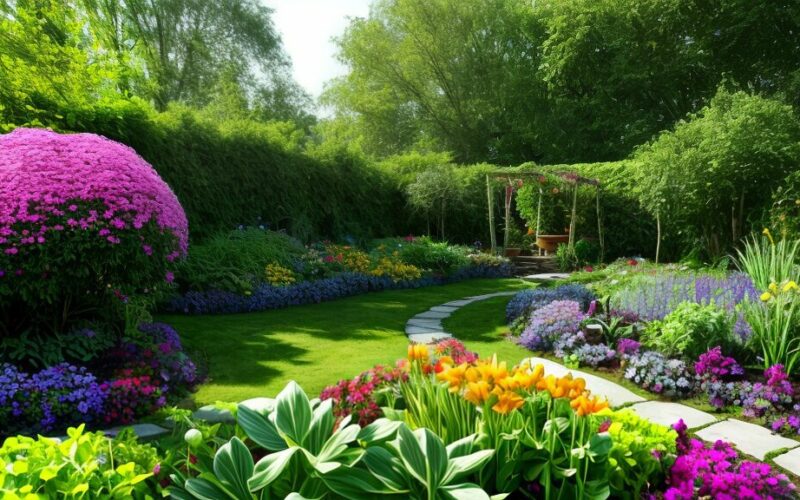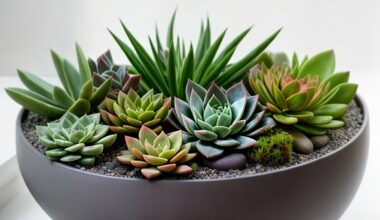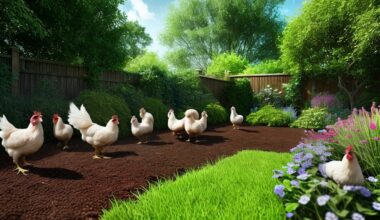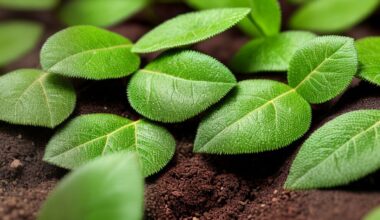Have you ever wondered what gardening really means? It’s more than just planting flowers and vegetables in your backyard. Gardening is a way to connect with nature, find peace, and express your creativity.
At its core, gardening is about nurturing and fostering life. It’s a way to cultivate beauty and contribute to the environment. Gardening can also be a form of exercise, stress relief, and a source of fresh, healthy food.
Whether you’re an experienced gardener or just starting out, understanding the true meaning of gardening is essential to truly appreciate this rewarding and fulfilling hobby.
Key Takeaways:
- Gardening is more than just planting flowers and vegetables
- It’s a way to connect with nature, find peace, and express creativity
- Gardening can be a form of exercise, stress relief, and a source of fresh food
The Importance of Gardening: Discover the Benefits
Gardening is more than just a hobby; it’s a therapeutic activity that can improve your physical and mental well-being. The benefits of gardening are plenty, and here are some of the most important ones:
| Benefits of Gardening |
|---|
| 1. Boosts your mood and reduces stress |
| 2. Provides fresh air and exercise |
| 3. Promotes healthy eating by growing your own fruits and vegetables |
| 4. Enhances your creativity by allowing you to design your own garden |
| 5. Helps the environment by reducing carbon emissions and providing habitats for wildlife |
Studies have shown that spending time in nature, such as gardening, can significantly improve your mood and reduce stress levels. Working with plants can also provide fresh air and exercise, which is important for maintaining good health.
By growing your own fruits and vegetables, you can ensure that they are fresh and free from harmful pesticides. Gardening can also promote healthy eating habits by encouraging you to consume more fruits and vegetables.
Gardening can be a great way to express your creativity by designing your own garden. With a wide variety of plants and flowers to choose from, you can create a unique and beautiful space that reflects your personal style.
Finally, gardening is beneficial for the environment. By reducing carbon emissions and providing habitats for wildlife, you can make a positive impact on the planet.
So why not start gardening today? Whether you have a large backyard or just a small balcony, there are plenty of options for every level of gardener. Get outside, get dirty, and enjoy the many benefits that gardening has to offer.
Gardening Tips: Mastering the Techniques
Whether you’re a beginner or a seasoned gardener, mastering the essential techniques is crucial to creating a healthy and thriving garden. Here are some practical gardening tips to help you get started:
1. Soil preparation
The quality of your soil is one of the most important factors in determining the success of your garden. Before planting, make sure to prepare your soil by removing any weeds or rocks and loosening the soil to a depth of at least 12 inches. You can also add compost or other organic matter to improve the soil’s fertility.
2. Watering
Proper watering is essential for the growth and health of your plants. Make sure to water your garden deeply and regularly, especially during hot, dry weather. However, be careful not to over-water, as this can lead to root rot and other problems.
3. Fertilizing
Most plants require regular fertilizing to thrive. Use a balanced fertilizer that contains equal parts of nitrogen, phosphorus, and potassium, and apply it according to the manufacturer’s instructions. Avoid over-fertilizing, which can burn your plants and harm the soil.
4. Pruning
Regular pruning can help your plants grow stronger and healthier. Remove any dead or damaged branches, as well as any branches that are growing too close to each other. You can also shape your plants by pruning them into the desired shape or size.
5. Pest control
Pests can wreak havoc on your garden, so it’s important to keep them under control. Use natural methods, such as companion planting and insecticidal soap, to keep pests at bay. If necessary, you can also use chemical pesticides, but be sure to follow the instructions carefully.
By following these simple gardening tips, you can master the essential techniques and create a beautiful and bountiful garden.
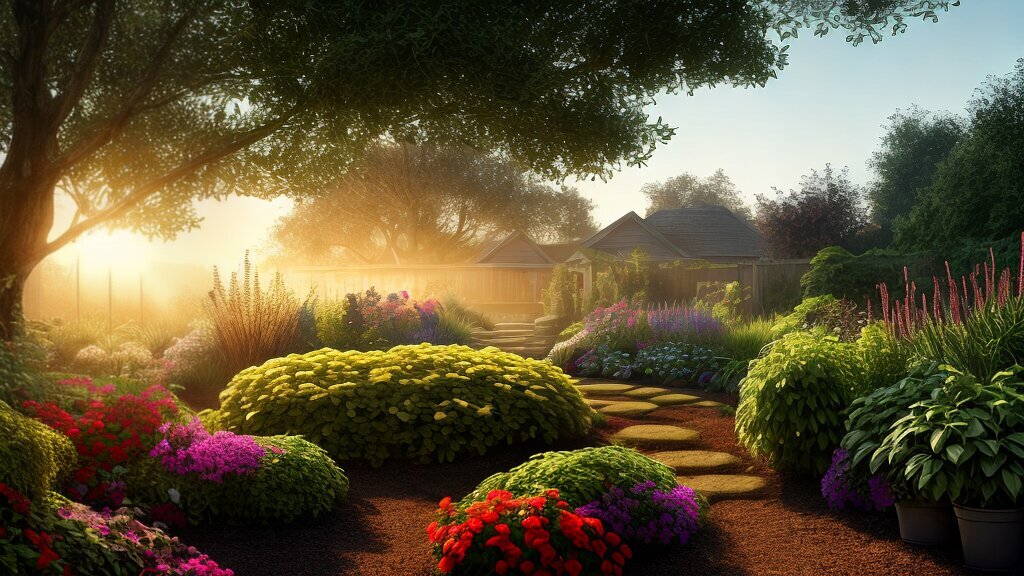
Essential Gardening Tools: Must-Haves for Every Enthusiast
Gardening is an enjoyable and satisfying activity, but it requires the right tools to get the job done efficiently and effectively. As a beginner, it can be overwhelming to determine which tools are essential, but fear not, we’ve got you covered. Here are some must-have gardening tools for every enthusiast:
Garden Gloves
It is essential to protect your hands while gardening, and garden gloves are the perfect solution. They protect your hands from cuts, scrapes, and blisters and keep them clean during the process. Choose gloves that fit well, are made of breathable material, and have a good grip.
Garden Rake
A garden rake is a versatile tool that helps you prepare the soil, spread mulch, and remove debris from your garden. Choose a lightweight rake with a sturdy handle and metal or plastic tines, depending on your needs.
Pruning Shears
Pruning shears are essential for trimming and shaping your plants. They come in various sizes and styles, each designed for different tasks. Choose a pair with a comfortable grip, a sharp blade, and a safety lock.
Trowel
A trowel is a small handheld tool that helps you dig small holes, transplant seedlings, and remove weeds. Look for a sturdy trowel with a comfortable grip and a sharp edge.
Watering Can or Hose
Watering your plants is crucial for their growth and survival, and having a watering can or hose makes the task more manageable. Choose a watering can with a comfortable handle and a spout for easy pouring. Or, if you prefer a hose, look for one with an adjustable nozzle and a comfortable grip.
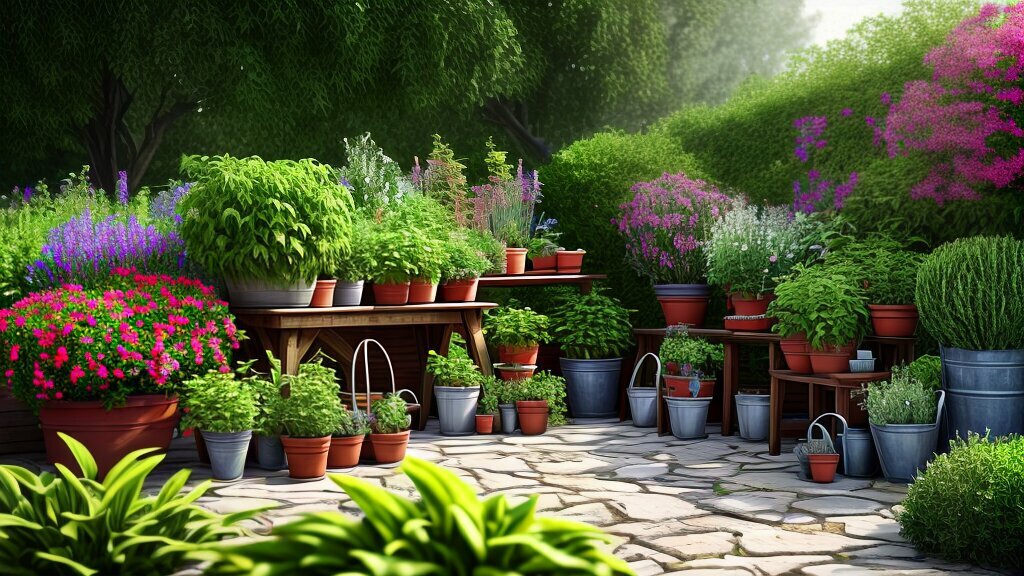
These are just a few of the essential gardening tools you’ll need to get started. With the right tools in your arsenal, you’ll be able to create and maintain a beautiful garden in no time.
Gardening for Beginners: Where to Start
Are you eager to start your own garden but not sure where to begin? Don’t worry! With some basic knowledge and a few essential tools, you can enjoy the joys of gardening in no time.
The first step is to choose a location for your garden. Look for a spot that receives at least six hours of full sunlight and has good drainage. You can start with a small area or choose to create a raised garden bed.
Next, consider the type of soil you have. If it’s too sandy or clay-heavy, you may need to amend it with compost or other organic matter. Many garden centers offer soil testing services to determine what type of soil you have and what you need to add.
Once you have your location and soil sorted out, it’s time to decide what to plant. As a beginner, it’s best to start with easy-to-grow vegetables or herbs such as tomatoes, peppers, basil, or parsley. They are also very suitable for container gardening, which is ideal for apartment living or small spaces.
Remember to water your plants regularly and keep an eye out for any pests or diseases. Gardening can be a very rewarding experience, but it does require some effort and attention!
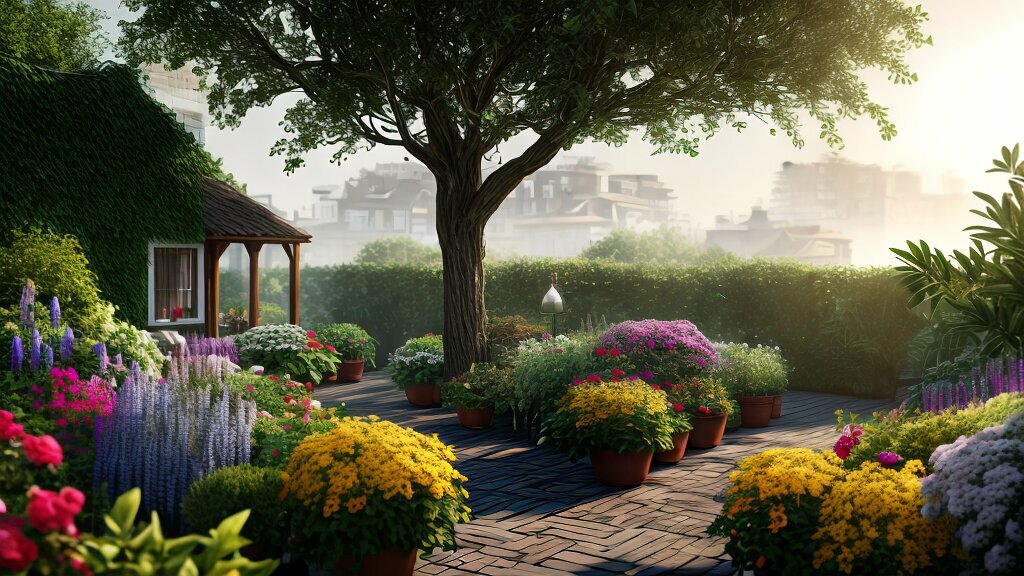
As you gain more experience and confidence, you can expand your garden and experiment with different plants and techniques. Don’t be afraid to try new things and get creative with your gardening!
Exploring Different Types of Gardening: Find Your Niche
Gardening is a vast and diverse field, offering many different types of gardening styles to suit every preference and skill level. Whether you prefer growing vegetables, tending to a flower garden, or working with houseplants, there is a type of gardening that will suit your needs.
One popular type of gardening is container gardening, which involves growing plants in containers or pots rather than in a traditional garden plot. Container gardens are perfect for those with limited outdoor space, such as balconies or small patios, or for those who want to add some greenery to their indoor spaces.
| Pros | Cons |
|---|---|
| – Requires minimal space – Low maintenance – Provides flexibility in plant placement – Beginner-friendly |
– Limited plant options – Requires frequent watering – Soil can dry out quickly – Plants can become root-bound |
If you have a bit more space to work with, you might try vegetable gardening. Vegetable gardens are a great way to grow your own fresh produce while enjoying the benefits of working outdoors. You can start small with a few containers or raised beds, or go big with a traditional in-ground garden.
Here are some advantages and disadvantages of vegetable gardening:
| Pros | Cons |
|---|---|
| – Fresh, healthy produce – Can save money on groceries – Fun family activity – Sustainable living practice |
– Requires time and effort – Can attract pests and diseases – Soil preparation can be labor-intensive – Weather can affect crop yield |
Another popular type of gardening is flower gardening. Flower gardens can add beauty and fragrance to your outdoor spaces, and many flowers are easy to grow with minimal maintenance.
Here are some pros and cons of flower gardening:
| Pros | Cons |
|---|---|
| – Adds color and beauty to outdoor spaces – Attracts pollinators and wildlife – Therapeutic activity – Can improve property value |
– Can require regular maintenance – Flowers can be seasonal – Some flowers can be invasive – Some flowers may require special care |
Whatever type of gardening you choose, it’s important to do your research and choose plants that will thrive in your specific growing conditions. With a little bit of effort and patience, you can create a beautiful and bountiful garden that will bring you joy for years to come.
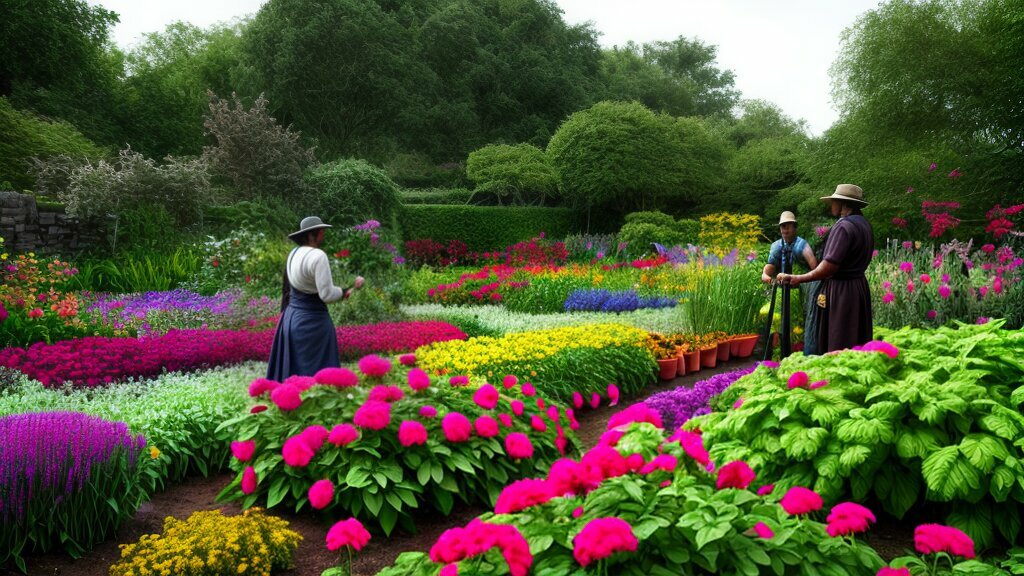
Gardening Ideas: Unleashing Your Creativity
Looking for creative gardening ideas to take your garden to the next level? Whether you’re new to gardening or an experienced pro, there are countless ways to add a unique and personal touch to your outdoor space. Here are a few ideas to get you started:
- Plant a themed garden: Whether you love butterflies, fragrant herbs, or bright colors, planting a garden that follows a specific theme can be both fun and rewarding. Consider planting a butterfly garden with flowers that attract these beautiful insects or an herb garden that you can use in your cooking.
- Create a container garden: If you don’t have a lot of space, container gardening is an excellent way to add greenery to your surroundings. You can use anything from traditional flowerpots to vintage teacups or repurposed containers to create a unique and charming display.
- Vertical gardening: If you have limited space, vertical gardening can be a great way to maximize the area you have. You can use trellises, hanging baskets, or wall-mounted planters to add greenery and interest to your walls and fences.
- Add some art: Sculptures, mosaics, and other forms of outdoor art can add a touch of personality and whimsy to your garden. You can even create your own DIY projects such as painted stones, wind chimes, or birdhouses.
- Light up your garden: Outdoor lighting can add both practicality and ambiance to your garden. You can use lanterns, string lights, or solar-powered fixtures to highlight specific areas or create a cozy atmosphere for evening gatherings.
These are just a few ideas to inspire you to get creative with your gardening. The possibilities are endless, so don’t be afraid to experiment and make your garden truly your own.
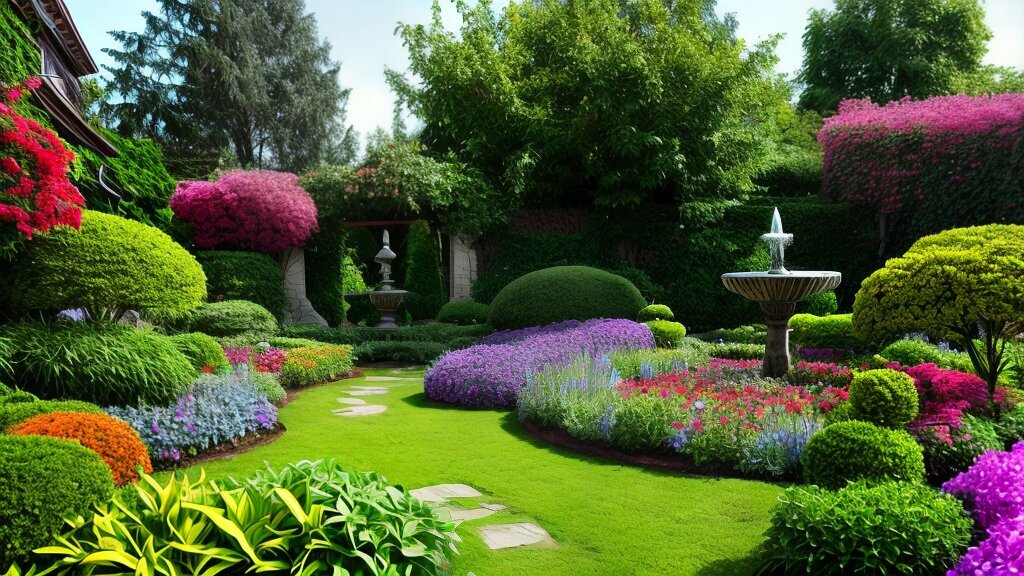
Conclusion: Embrace the True Meaning of Gardening
Congratulations! You have reached the end of our guide to gardening for beginners. We hope that you have gained a better understanding of what gardening is all about and why it’s such a fulfilling hobby to pursue.
Remember, gardening is not just about growing plants and flowers; it’s about connecting with nature, nurturing life, and finding peace in the present moment. No matter where you live or how much space you have, gardening is something that anyone can enjoy.
So, take what you’ve learned and start exploring the wonderful world of gardening. Whether you’re interested in growing your own vegetables, creating a beautiful flower garden, or simply tending to a few potted plants, there’s no better time to start than now.
Keep on Growing
We hope that our guide has inspired you to embrace the true meaning of gardening and keep on growing. Don’t be afraid to experiment, make mistakes, and try new things. With practice and patience, you’ll soon develop the skills and confidence needed to create your own unique and beautiful gardens.
Thank you for reading, and happy gardening!

